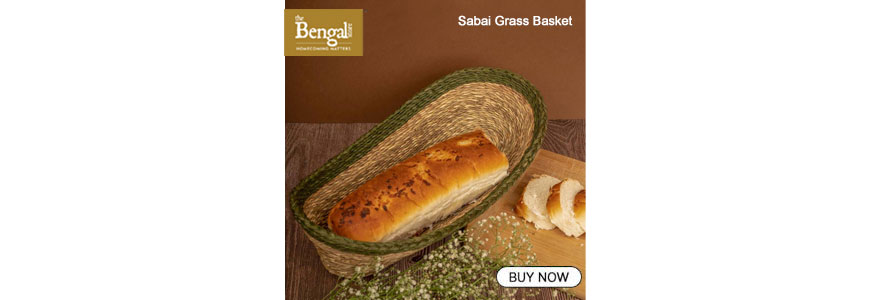The Bengal Store: A celebration of the art, crafts, textiles and agro products of Bengal– GetBengal story
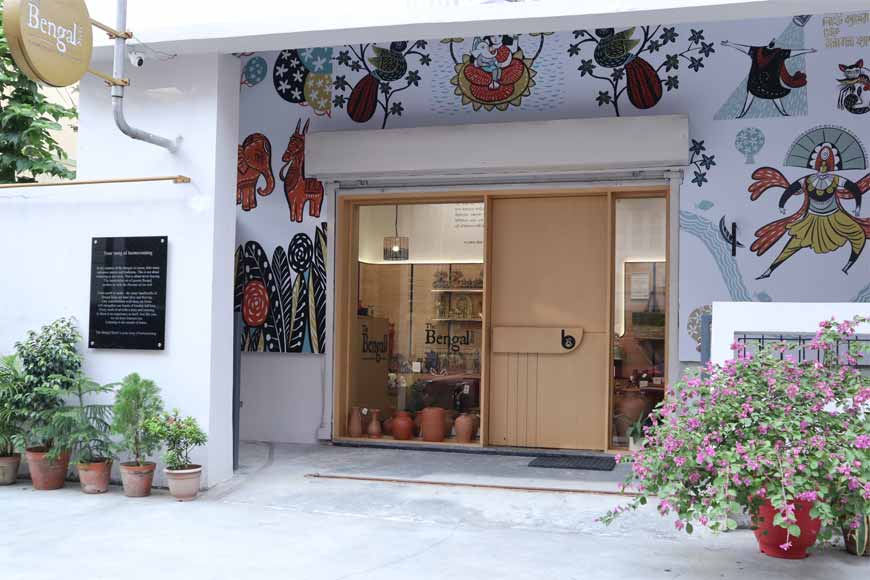
Bengal has a chequered past. The Pundra, or Pundranagara, was the earliest urban settlement in the 4th century that was established. Pundranagara remained the administrative headquarters of the Mauryas, Guptas, and Palas. It was the capital of Pundrabardhan Bhukti under Gupta rule. The famous Chinese visitor, Hiuen-tsang, visited this place in the 7th century AD. The earliest sources, including the Mahabharata and other Vedic literature, suggest ancient Bengal was divided among various tribes or kingdoms, which were known as Janapadas. So far, historians have identified six Janapadas: Banga, Pundra, Gauda, Radha, Samatate, and Harikela. These ancient settlements were prosperous and well connected with other parts of the country through land and river routes; hence, they were important centres of trade and commerce throughout the ancient period. Gauda was one of the most important of the Janapadas. Shashanka was the first independent ruler of Gauda, who ruled in the 7th century AD. His capital was Karnasuborna, which is located in the present Murshidabad district.
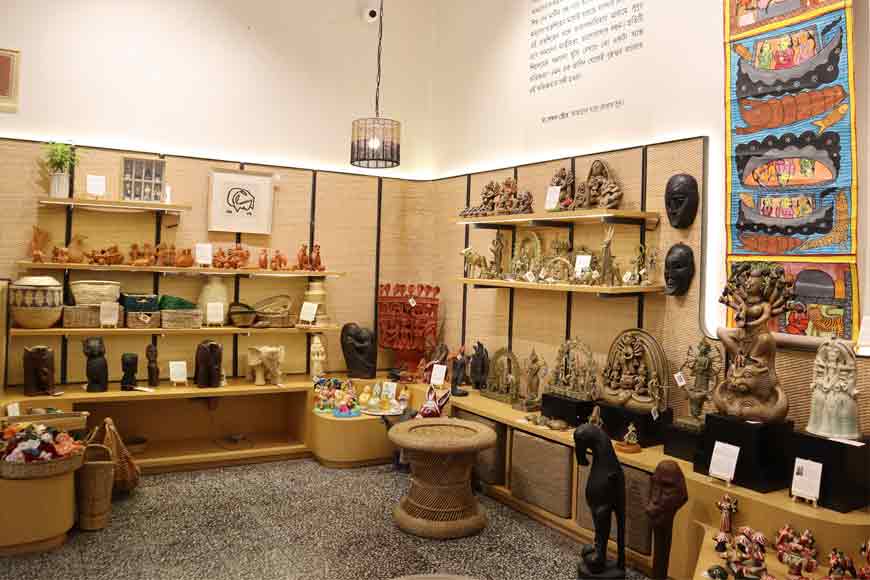
Since the region was under different rulers from different dynasties in the past, the arts and crafts of Bengal underwent many changes, resulting in artistic diversity in different spheres like handicrafts, terracotta, painting and carving, dances, and music.
Today, Bengal is known for its deep cultural legacy, intellectual prowess, and scenic surroundings. Bengal’s rich artistic legacy has brought honour to the region. It is a pity that our knowledge of our rich heritage is very limited. Forget about the glorious past of Greater Bengal; we are not even aware of the art and culture produced in the different districts of the state! Every part of the state is a rich treasure trove of art and craftsmanship, and every district has its own story to tell. Most of these tales remain unexplored, obscure, region-based, and out of reach. Imagine if, regardless of the origin of these exquisite indigenous products, the rich and myriad resources of Bengal could be explored from any part of the world. From this idea, 'The Bengal Store' e-commerce site was born. A commercial website that offers an opportunity for global connoisseurs of art and craft to explore handpicked artefacts from all over Bengal. The online shop has now decided to expand its reach and inaugurate its first store in South Kolkata's Jodhpur Park on May 3, 2024.
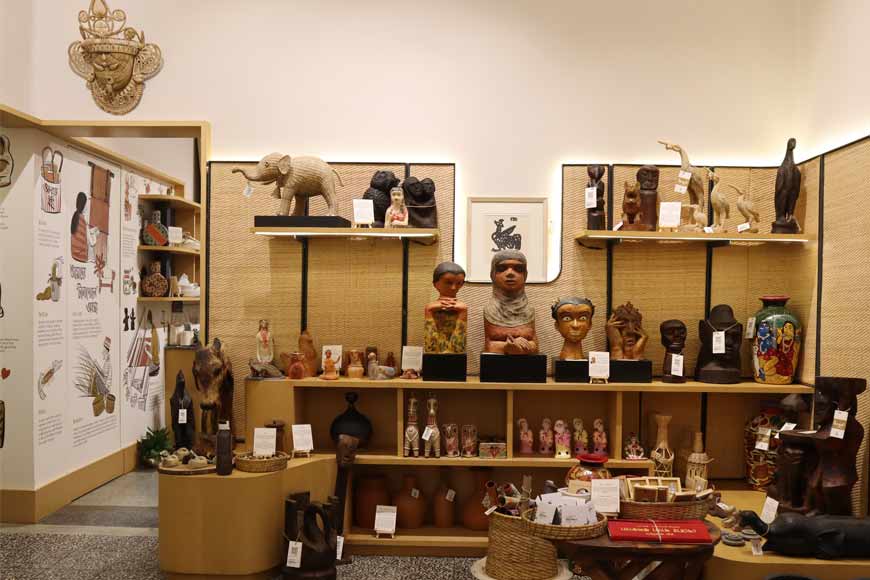
The ambiance of the store is cosy and friendly. The name of the store is written in bold. It reads, “The handwoven art of Greater Bengal ushers in a whiff of fresh soil from the land. The displayed items are testimony to the fact that the wands that infuse life into art and craft items from all corners of the state are safe in the able hands of the artisans and their handicrafts. Interacting with the handicrafts will revive our kinship and strengthen our bond of love. Exploring the story behind each creation is, in and of itself, a unique experience! It is this urge that drives us to be part of this experience of greater Bengal.”
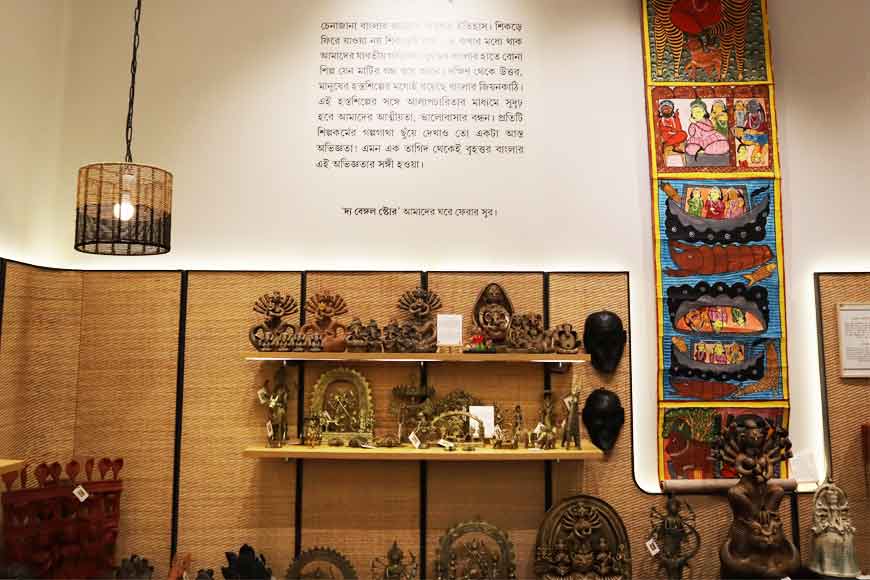
The Bengal Store is not your usual curio shop. It's a space where you can reconnect with your roots. Visitors can touch and feel the items on display. You can walk around and read about the age-old traditions, the stories of the artisans, and the products. It's an experience. The Bengal Store aims to enrich collectors’ experiences and generate a strong bond. Homecoming is the leitmotif of the store.
Handmade art
A visit to The Bengal Store at Jodhpur Park is a unique experience and will unlock a treasure trove of fascinating information and stories. One of our beloved products are the Shellac dolls.
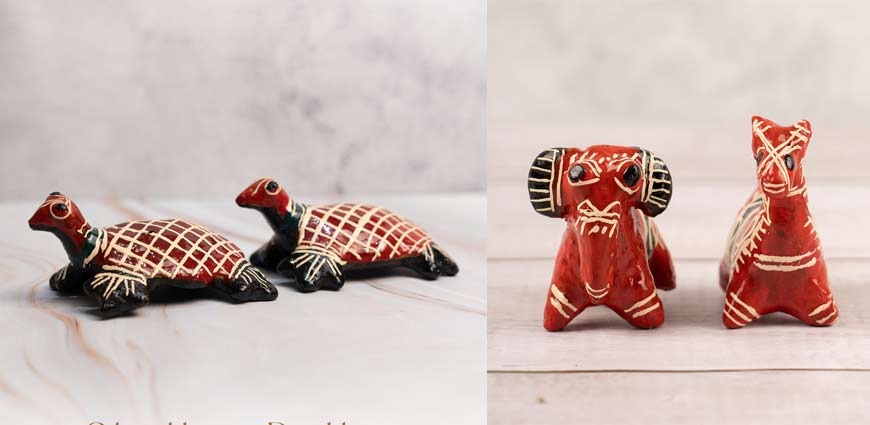
Gala or Shellac is a natural resin secreted by the female lac bug, 'Coccus lacca' on trees in the forests of India and Thailand. The use of lac dye goes back to ancient times. It was used in ancient India and neighbouring areas as a wood finish, lacquerware, skin cosmetic, jewellery, doll making, and dye for wool and silk. Lac is not harmful for the human body, and hence, children's pacifiers were also made from lac.
Today, only two artisans in the entire state are keeping the tradition of making artefacts using lac or gala alive. The Bengal Store has collected all their handmade fancy gala dolls and other artefacts.
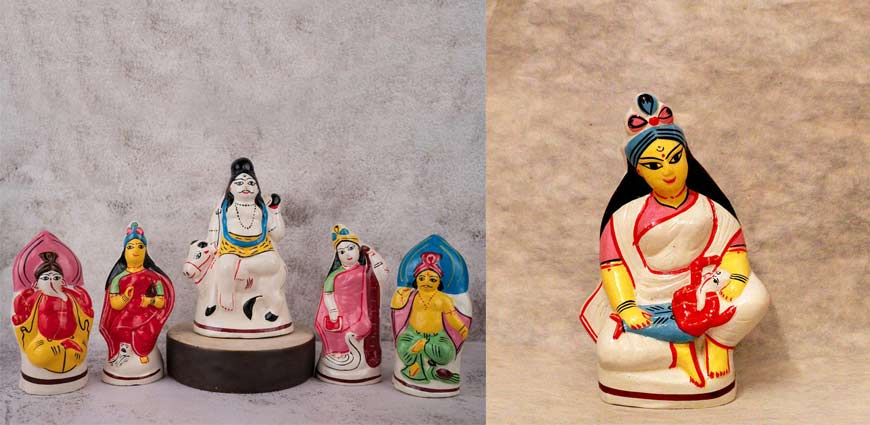
The store has also displayed a large variety of Mojilpur dolls. The captivating fire-clay dolls of Majilpur, South 24 Parganas district, have their own individual histories. Legendary doll maker Shambhu Das’s grandson, Manmatha Das, has kept the family tradition alive and makes these distinctly unique clay dolls in his village.
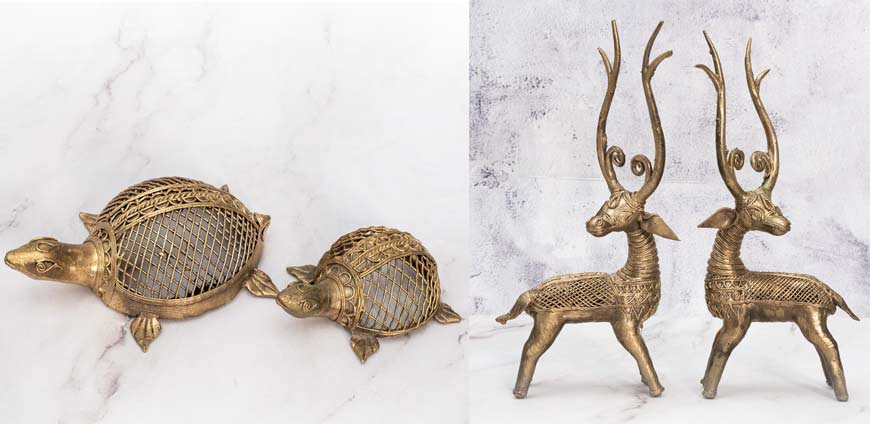
In short, The bengal Store brings together the handicrafts from the 23 districts of Bengal under one roof. The myriad collection of Bonga Hati, Shasthi Putul, Dev-Devi Putul, Rani Putul, Tepa Putul, Bhagyamani Putul, et al. is an attempt to revive the tradition of clay dolls, which are fast becoming extinct in the age of plastic. The store has a rich collection of rare, almost extinct handicrafts procured from different districts: rare Bengali books, prints, terracotta figurines, masks made of Dokra wood dust, wooden masks of Dinajpur-Naxalbari, paper artefacts, stone carvings of Shushunia, bronze utensils and figurines of Kenjakura, baskets, mats, traditional Dhokra of Dinajpur, household products woven with sabai grass, ceramics, decorative items like birds made of betel nut and bamboo parts, lanterns from Bishnupur, Patachitras et al. Patachitra paintings are a traditional art form from Midnapore. Patachitra’s master artist, Dukhushyam Chitrakar’s work ‘Prayaschitta Pat' is up for grabs at the store. Cane elephants and bamboo sculptures of Goddess Kali made by state-level, award-winning artists are available for purchase as well.
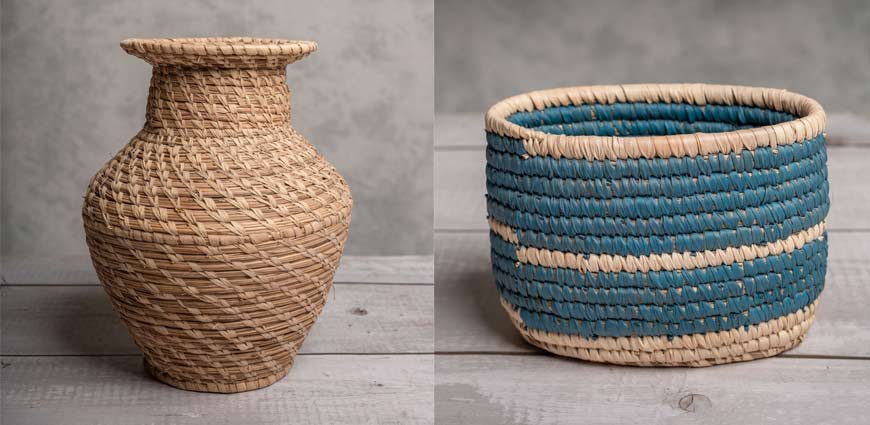
Handmade cloth
In the colourful tapestry of India’s cultural heritage, handloom sarees stand as a symbol of elegance and timelessness. They embody the artistry of skilled weavers who have painstakingly woven threads of tradition into each intricate design. However, the market is flooded with fake handloom sarees. Fraudulent companies mimic the distinctive weaves and designs of genuine handloom sarees, leading unsuspecting buyers into a web of deceit. From this perspective, The Bengal Store encourages buyers to know and recognise the authenticity of the product first and then buy their products.
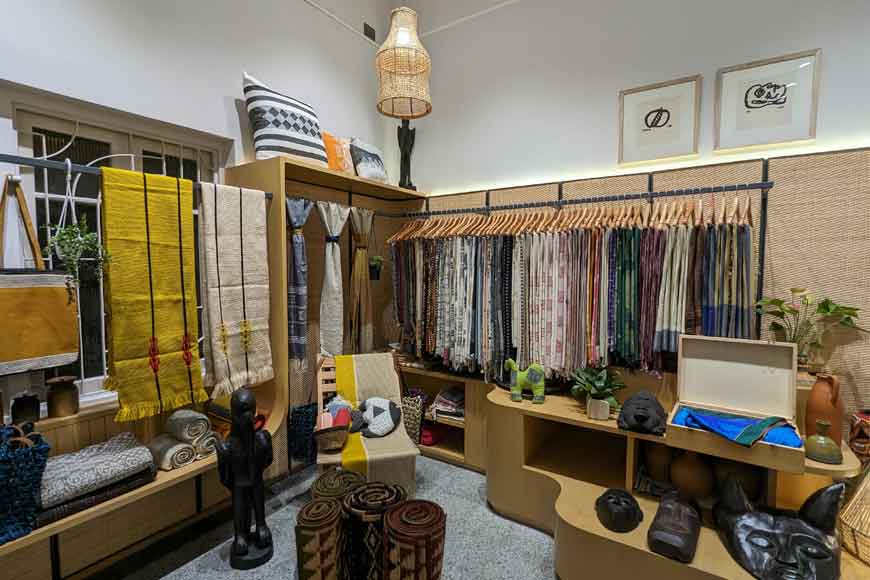
Shyam Biswas, the in-house textile designer of The Bengal Store, is always at hand to assist customers in explaining the dissimilarities between cloth woven by 'handloom' and 'power loom' and distinguishing the differences. Visitors will be apprised about small but vital facts; like why the beating of weft is perceived no more or why the rhythmic, monotonous sound of weaving continuum is rarely heard these days. Fabrics woven with synthetic or polyester yarns are hazardous for the environment and human life, besides gradually destroying the age-old tradition of the handloom textile industry. 'The Bengal Store’ is all about protecting the natural environment, and hopes to focus on the resurgence of the authentic hand woven looms of West Bengal.
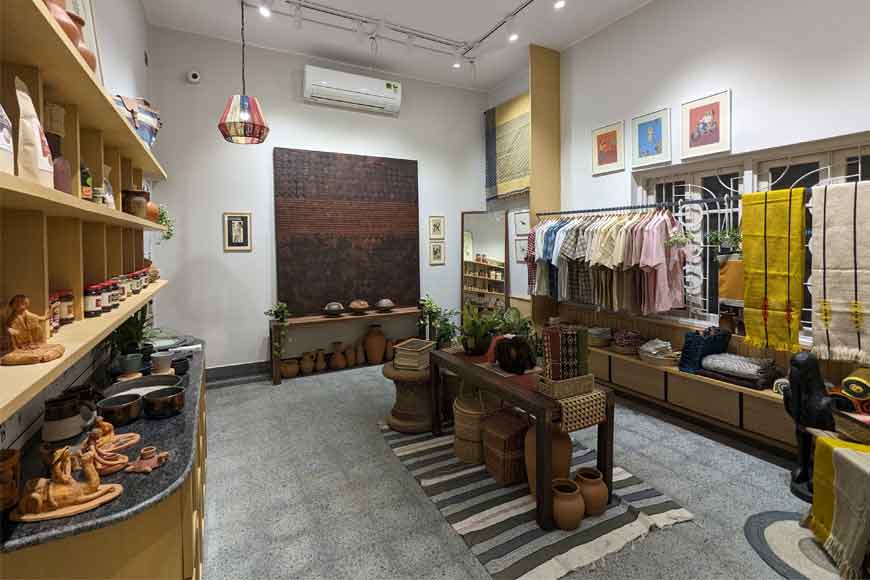
At 'The Bengal Store', all articles of clothing and dress are coloured using 'natural dye' method, where dyes are procured from easily available natural materials like onion peel, haritaki (chebulic myrobalan), indigo, iron powder, ash, petals of marigold, rose, hibiscus, etc. The natural dyes are long-lasting when applied to pure cotton, silk, or woollen materials. The Bengal Store plans to manufacture its brand of clothing using only natural dyes. The store has a fabulous stock of fashionable woollen sweaters, cardigans, mittens, mufflers, shawls, etc., all hand-knitted by the rural women of Darjeeling. These hand-knitted wares display an exquisite tapestry of Tibetan, Gorkha, and Lepcha cultures.
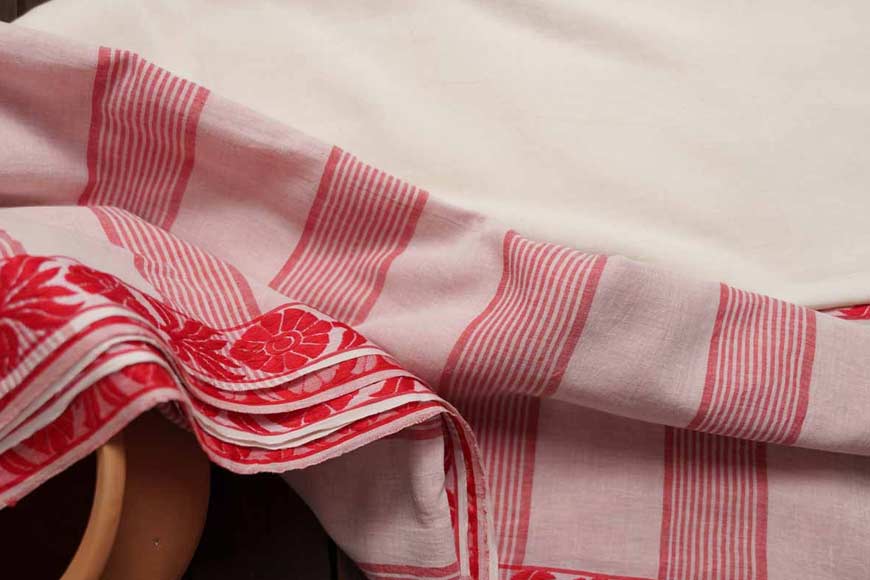
Each saree on display at the store has an individual story to tell. Artist Shyam Biswas has recreated the ‘Kunjolata’ border saree worn by Sarbajaya (in Pather Panchali), and the velvet border saree of Bimala (Ghore Baire) in Satyajit Ray's first and last films. Also notable designs among cotton handwoven sarees of Bengal that are on display include Kalmilata, Pachapede, Tangail Benarasi, Daker Saaj, Hajaar Buti, and Ganga Jamuna, woven in 92x92 count. Pure cotton, hand-woven shirts for men are also for sale.
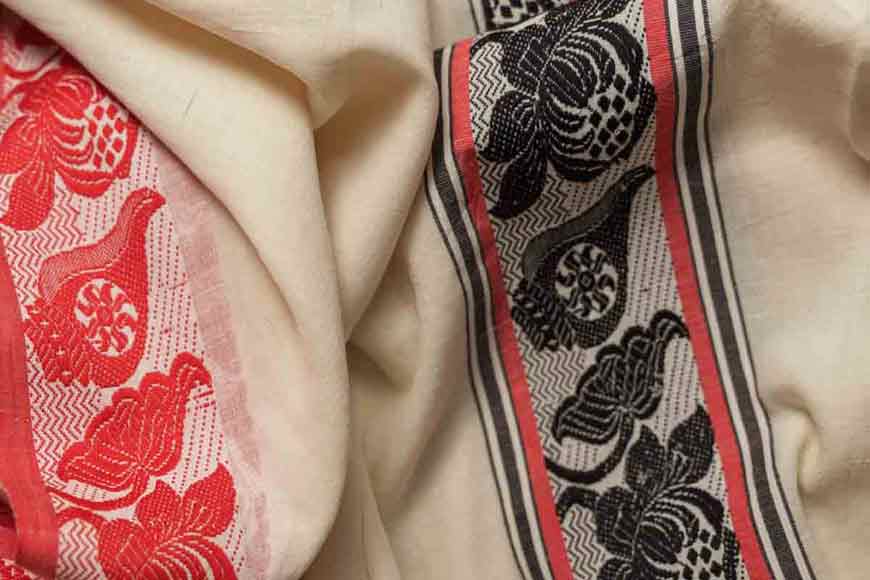
Unadulterated Organic Food:
In the last few years, the demand for Bengali handicrafts, handlooms, and organic food items has increased manifold. Taking this opportunity, many traders have propelled their businesses to sell organic food items. However, when a customer buys these items, he or she has to depend on the seller’s word of mouth. There is no way to check the authenticity of the products. But at The Bengal Store, all food items are procured directly from the farmers and then tested at NABL-accredited laboratories. There is a wide array of organic items to choose from at the store, including pure ghee, honey, spices, pickles, fritters made of lentils, mustard oil, pulses, and sugarcane jaggery. Rare and indigenous rice varieties like black-nuniya and excellent, aromatic rice like Radha Tilak are available at the store.
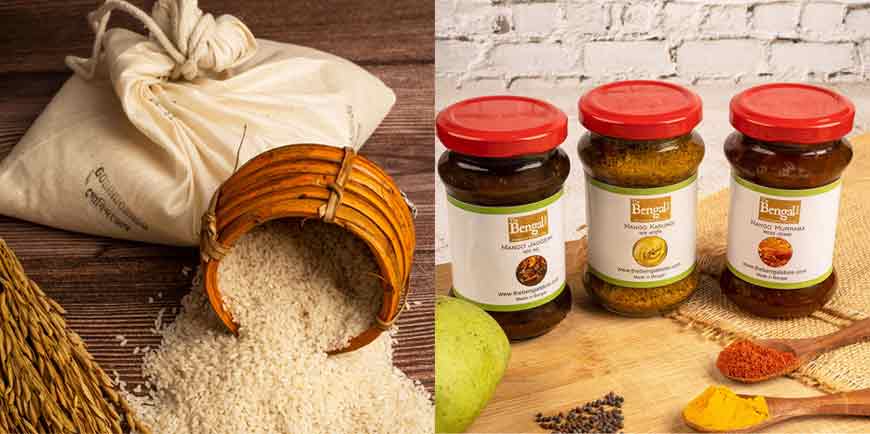
In Addition:
The Bengal Store has an eclectic collection of paintings and sculptures by some of the most eminent contemporary artists, like Alokananda Sengupta (sculptor), Partha Dasgupta and Asim Pal, as well as works by legendary artists like Somnath Hor, Jogen Chowdhury, and K.G. Subrahmanyan.
Two other eye-catching items at The Bengal Store are the Murshidabad Balaposh and Kharokisti boat replicas.
According to legend, Sujauddin, the first independent ruler of Bengal, ordered Caliph Ramzan Sheikh to make a soft and feathery blanket that would protect the Nawab from the bitter cold of the winter months. Ramzan Sheikh used ‘Carpus’ cotton to make the blanket and then covered it with silk cloth. This creation was called Balaposh. During the Nawabi period, high-quality carpus cotton was used to make Balaposh. 'The Bengal Store' brings back Nawabi-Balaposh, made of carpus cotton and wrapped with silk fabric.
In the past, boats from the Genokhali area of Midnapore district were used to carry large amounts of hay from the Sundarbans to Calcutta. This indigenous boat of Bengal is considered to be an engineering marvel, but unfortunately, it has become extinct. Famous anthropologist known as 'Nauko Manav' (Boatman of Bengal) of Bengal, Swarup Bhattacharya, has painstakingly made a replica of the boat. His boat models are truly a collectors’ items and are available exclusively at The Bengal Store.
Eminent cartoonist Uday Dev has deftly designed this store. The interior walls of the store are covered with illustrations of artisan's, weaver's, and farmer's caricatures, engaged in their craft with funny catchlines in Bengali. Uday Dev's illustrated magnets on Kolkata can also be found at the store.
In other words, rare handicrafts from all over Bengal, organic food items, naturally dyed apparel, hand-woven fabrics, cosmetics, paintings by eminent artists, and sculptures—all the priceless resources of Bengal are now under one roof. 'The Bengal Store' is not just a store; it is a celebration of the Bengali ethos, art, crafts, and weaving. A visit to the store is like discovering the rare, lost art of Bengal and getting an insider’s view into the creative process of each art piece.
Address of 'The Bengal Store'
127, Gariahat Road, Jodhpur Park, Kolkata 700068 (11am to 8pm/Closed on Sunday)







